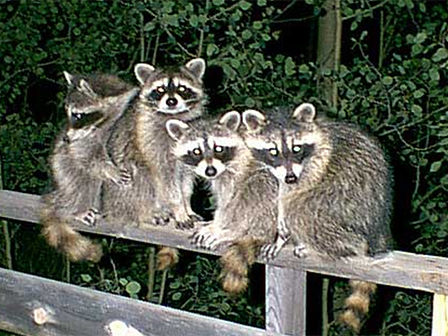Corporate Office:
20 Corporate Park Drive, Suite 150
Pembroke MA 02359
Cambridge, MA Office:
2534 Massachusetts Ave,
Cambridge, MA 02140
January 7, 2024

As winter sets in, many of us are inclined to hibernate indoors, enjoying the warmth and comfort of our homes. However, there's a group of creatures that doesn't share the same sentiment – raccoons. These adaptable mammals remain active throughout the winter, and their presence can pose challenges for homeowners. In this blog post, we'll explore the winter habits of raccoons and how they can potentially affect your home.
Raccoons are known for their resourcefulness and ability to adapt to various environments. During the winter months, they don't hibernate but instead alter their behavior to cope with the colder temperatures. Raccoons may become more visible as they search for food and shelter in urban and suburban areas.
One of the primary concerns for homeowners is raccoons seeking shelter in and around their homes. Attics, crawl spaces, and sheds provide ideal hiding spots for these curious creatures. Once inside, they can cause significant damage by tearing insulation, chewing wires, and leaving behind waste.
Raccoons are skilled climbers and can easily access rooftops and attics. Once inside, they may tear apart roofing materials, soffits, and vents in their quest for shelter.
Raccoons can carry various diseases, including rabies, and their droppings may contain harmful parasites. If raccoons take residence in or around your home, it increases the risk of disease transmission to humans and pets.
The scent of raccoon urine and feces can be quite pungent. If they establish a den on your property, the resulting odors can permeate into your living spaces, creating an unpleasant environment.
While raccoons may be fascinating creatures in the wild, their presence in and around your home during winter can lead to a host of issues. Taking proactive steps to secure your property and seeking professional assistance like Secured Environments Pest Control and Wildlife Services if needed will help mitigate the potential impact of raccoons on your home and ensure a more peaceful winter for you and your family.